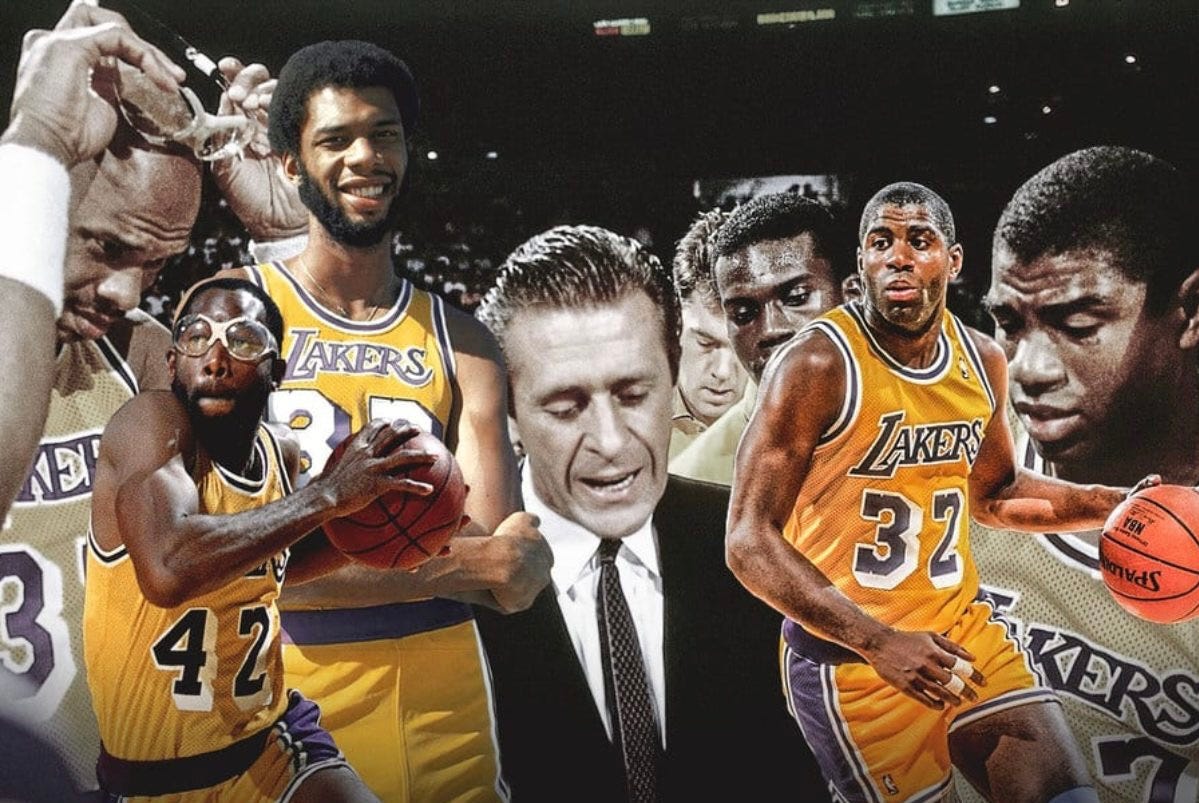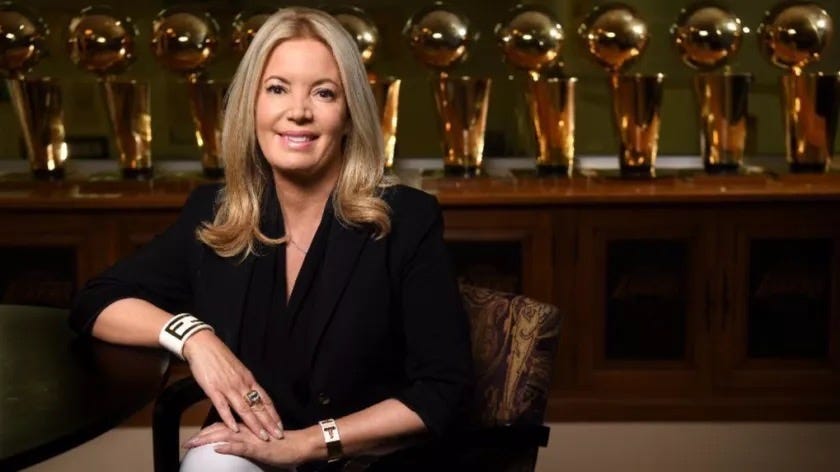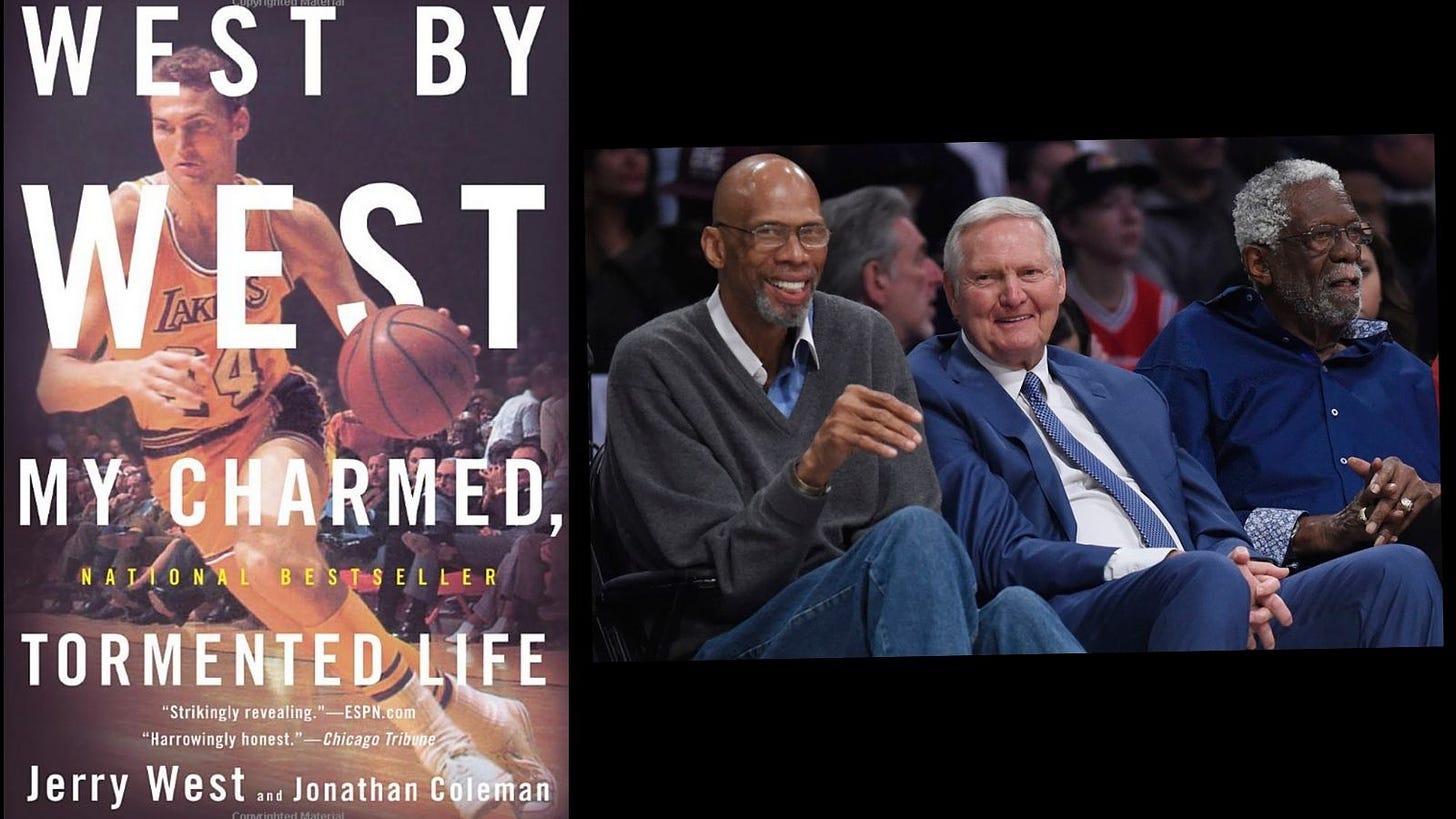Kareem Abdul Jabbar Kareem Abdul Jabbar Cartoon Drawing Easy

A lot of people have been asking me if I've seen the HBO series Winning Time: The Rise of the Lakers Dynasty . Actually, I had no real interest in watching the show, not because of any negative feelings about being exploited, but because I'd already lived through it. I know exactly what happened. To watch 10 hours of someone else's interpretation seemed like a waste of my time. For me, the show would be excruciatingly familiar like being interviewed by Chris Farley in the famous Saturday Night Live skit when he asked Paul McCartney questions like, "Remember when you were with the Beatles?" However, after hearing some angry grumblings in the pop culture ether about misrepresentation and outright lies, my journalistic curiosity took over and I sat down to watch.
Before I get to my opinion, we'll need to clear up two things.
First, my response to the show has nothing to do with how I'm portrayed, the details of which I'll discuss later. I'm 75, folks, and have been dealing with positive and negative descriptions of me for 55 years and I long ago accepted that it's just part of the celebrity gig. There's very little that anyone can say about me—whether it's true or false—that will affect my life. Especially in a TV show. I don't get mad if someone wants to portray me as basically a T-800 Terminator robot. My record as a college and NBA player and my lifetime commitment to social justice is enough for me.
Second, I'm not a stickler for everything being factual when doing a fictionalized account of historical events. One of my favorite shows is The Great , a historical dramedy about Catherine the Great, Empress of Russia. Nearly nothing is factual, which the show's creators remind us with their onscreen title: The Great: An Almost Entirely Untrue Story . Sometimes writers must take dramatic license in order to convey a deeper truth. I'll also discuss this in more detail later.
To recap: My reaction to Winning Time is not related to how I'm portrayed nor to a need for a factual account of those years. Now, let's dig in.
There is only one immutable sin in writing: Don't Be Boring! Winning Time commits that sin over and over.
That surprised me because Adam McKay is one of the producers and he directed the first episode. Anyone familiar with McKay's work ( The Big Short , Vice , Don't Look Up ) can see his stylistic influence in the entire series. I generally am a fan of McKay's work— The Big Short and Vice are wonderful—except for the bloated and obvious Don't Look Up (which I critiqued here). I thought the poor quality of Don't Look Up was an anomaly. I hoped that perhaps because he was overwhelmed by his passion about global warming, he let his commitment overshadow his critical eye. But now that Winning Time suffers from some of the same shallowness and lazy writing, I'm not so sure.

I'll start with the bland characterization. The characters are crude stick-figure representations that resemble real people the way Lego Hans Solo resembles Harrison Ford. Each character is reduced to a single bold trait as if the writers were afraid anything more complex would tax the viewers' comprehension. Jerry Buss is Egomaniac Entrepreneur, Jerry West is Crazed Coach, Magic Johnson is Sexual Simpleton, I'm Pompous Prick. They are caricatures, not characters. Amusement park portraits that emphasize one physical feature to amplify your appearance—but never touching the essence.
The result of using caricatures instead of fully developed characters is that the plot becomes frenetic melodrama, sensationalized invented moments to excite the senses but reveal nothing deeper. It's as if he strung together a bunch of flashing colored lights and told us, "This is the spirit of Christmas."
How was the plot constructed? If you gathered the biggest gossip-mongers from the Real Housewives franchise and they collected all the rumors they heard about each other from Twitter and then played Telephone with each other you'd have the stitched together Frankenstein's monster that is this show. I was shocked that for all the talent and budget, the result was so lacking in substance and humor.
Humor is one of Adam McKay's specialties, but he can't seem to find any in this show. There are attempts, but they often fall flat because they are so obvious and predictable. Those bro-dude attempts are as cringy as a bad SNL skit.
He uses the technique of breaking the fourth wall in order to have the characters directly address the audience. The only reason to do this is to get humor or give insight, as it does in his The Big Short and other films such as Annie Hall , Ferris Bueller's Day Off , Deadpool , and the TV show Fleabag . But in Winning Time , it's neither funny nor insightful, mostly just giving us information.
It never held my interest enough for me to care, let alone be outraged.
In 1896, American author Stephen Crane ( The Red Badge of Courage ) was aboard the SS Commodore on its way to Cuba when it sank. He and three other men initially survived in a lifeboat, but one died when the boat overturned as they tried to make it to shore. Crane's journalist account of that deadly adventure became famous. Not content with the factual account, he wrote "The Open Boat," a short story about the event that is one of the most famous works in American literature. Why was he compelled to write a fictional version when he'd already written the facts? Because sometimes there are universal truths that fiction can convey that go deeper than the facts. That's why writers rightfully adjust facts when telling stories based on actual events.
Having written several history books, I'm aware of the struggle to get things historically accurate. Having written historical fiction, I'm aware of the struggle to get the time period accurate. But having also written a graphic novel in which I played fast and loose with the factual Queen Victoria, I get how accuracy can be sacrificed for the sake of the story.
One major difference here is that most the people being portrayed are still alive, still have a legacy that is important to them. I may have made up words and actions for Queen Victoria, but I didn't denigrate her.
So, the issue with Winning Time isn't so much that the filmmakers deliberately avoided facts as if they were an STD, but that they replaced solid facts with flimsy cardboard fictions that don't go deeper and offer no revealing insights.

In an attempt to inject some social relevance, the show does some heavy-handed virtue signaling about the exploitation of women while at the same time exploiting them. Jeanie Buss was 17 when her father bought the Lakers, but she didn't come to work for them until after she'd earned her business management degree from the University of Southern California and been general manager of the Los Angeles Strings, a World Team Tennis franchise. She wasn't the naive daddy's girl portrayed in the first few episodes. Making her a girl-child belittles her early achievements on her own. Having Claire Rothman unbuttoning blouse buttons and flouncing her hair before meeting Jerry Buss (which she denies ever happened) reduces her intelligence and competence for a cheap joke—which is probably the kind of misogyny the women had to endure in business and now have to endure from the filmmakers.

It's a shame the way they treat Jerry West, who has openly discussed his struggle with mental health, especially depression. Instead of exploring his issues with compassion as a way to better understand the man, they turn him into a Wile E. Coyote cartoon to be laughed at. He never broke golf clubs, he didn't throw his trophy through the window. Sure, those actions make dramatic moments, but they reek of facile exploitation of the man rather than exploration of character.
Another scene that never happened is Norm Nixon humiliating Magic at a party by outplaying him one-on-one. I could just imagine the writers gleefully rubbing their hands together in self-congratulations at coming up with that idea. The problem is that it's another soap opera moment that shows no understanding of the dynamics of players and how they interact.
I've battled leukemia, heart surgery, cancer, fire, and racism—a negative portrayal of me on a TV show has no effect on me personally. But it does affect others. For example, I never said "F—k off" to the child actor (Ross Harris) in Airplane! , nor have I ever said that to any child. I realize this was a shorthand way of showing my perceived aloofness during that time, even though I have often spoken about my intense, almost debilitating shyness. Sometimes the attention in public became so overwhelming I shut down to protect my sanity. The filmmakers had access to that information, but truth and insight were not on their agenda. Shocking moments were.
There is a victim here, it's just that it's not me. My charity the Skyhook Foundation, provides week-long retreats for inner-city school children to study science while staying in the national forest. For years, I have been visiting schools to promote STEM education. But when people see this show and come away with an impression that I'm verbally abusive to children, they are less likely to support my foundation. That means fewer kids will be able to partake in the program. So Adam McKay is giving those kids a great big "F—k off!" that lasts a lot longer than the easy laugh he got out of a dishonest joke.
Clearly, the show hoped to capture the zeitgeist of the socially adrift Eighties and how Jerry Buss's brilliant visionary approach launched the popularity of basketball into orbit. How a group of young men came together—with all their personal issues—and became one of the greatest teams in NBA history. To show the pressures on successful Black men emerging from two decades of tumultuous civil rights unrest. To explore what happens when you throw a bunch of highly competitive elite athletes together into the cement mixer of professional sports, celebrity, and money, and see how they struggle to balance all that and still find a way to defeat dozens of other teams composed of the best players in the world.
Yeah, there's an amazing, compelling, culturally insightful story in there. Winning Time just ain't that story.
Postscript: For those of you who are interested in exploring what really happened, I suggest you watch the excellent documentary They Call Me Magic on Apple TV+. Also, the Lakers have produced a 10-part docuseries, with the cooperation of all the players involved, which will be released later this summer on Hulu directed by Antoine Fuqua.
zawackislieventes.blogspot.com
Source: https://kareem.substack.com/p/winning-time-isnt-just-deliberately
0 Response to "Kareem Abdul Jabbar Kareem Abdul Jabbar Cartoon Drawing Easy"
Enregistrer un commentaire